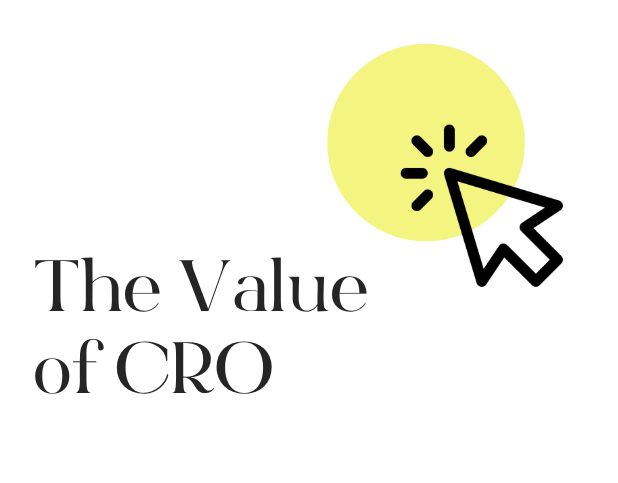You’ve probably heard it a lot over the past two years, but we’re going to say it again: we are living in unprecedented times. Even in the middle of a global shipping and fulfillment crisis, the ecommerce and direct to consumers (DTC) industries are growing 23% year over year, with no sign of slowing down. This may come as a surprise, but to modern consumers, online shopping is the new norm—and picking the right content management system (CMS) for your DTC brand can have a huge impact on your brand’s success.
The truth is, there are hundreds of content management systems out there to choose from, each with its own unique strengths and weaknesses. Which CMS is right for your DTC brand depends entirely on your business’s purpose, size, and use case.
For instance, let’s say you’re comparing WordPress and Drupal. As you research the two platforms, you’ll find that WordPress is best for blogs while Drupal is better suited for high-traffic sites with large amounts of data. If your business doesn’t fit into one of these categories, you may want to explore other CMS to find one that’s best suited for your brand.
WordPress and Drupal are just two examples of different types of CMS. In this post, we’ll take a deep dive into the world of DTC content management systems. We’ll explore what a CMS is and what it does, how to choose a CMS for your brand, and review a few of the best CMS for DTC brands. But first, let’s take a look at what a CMS is, what an ecommerce platform is, and what’s the difference.
What is a CMS?
A content management system (CMS) is software that enables ecommerce shop owners to create, edit, and publish digital website content without writing any code. It also allows users to modify the look and feel of the online store, such as changing the product page layout, adding promotional banners, or quickly adding new website sections to better promote products.
An ecommerce platform, on the other hand, is an online shopping solution that enables you to manage and sell products directly through your website. In other words, it’s an easy-to-use software that handles all essential backend store management functions for online shops. While some ecommerce platforms also serve as a CMS, this is not the norm, and if you’re a DTC brand owner, you’ll likely want to find a CMS that also serves as an ecommerce platform.
Now that you understand what a CMS is and how it differs from an ecommerce platform, let’s take a look at how to choose a CMS for your DTC brand.
How To Choose a CMS
Like buying a good suit, choosing a CMS for your DTC brand comes down to two crucial factors: quality and fit. The ideal CMS platform for your brand will align with all of your site’s needs and goals, so a great place to start is to identify what you need from a CMS. Not sure where to start? Some of the most important factors to consider are convenience, customizability, security, and pricing. Let’s take a look at each of these in more detail.
1. Convenience
When selecting a CMS, convenience and ease of use are essential factors to consider as they greatly impact the adoption rate and operational capabilities of your team. The ideal platform will be convenient and easy to use for your entire team, not just the developers and office techies.
For instance, if everyone on your team needs to be able to work on the backend of the CMS, you may want a CMS where developers and content managers can work simultaneously to create/edit content or add custom code. When thinking about the convenience factor, take into consideration who will be using the CMS most and tailor the capabilities to the functions of that role.
2. Customizability
While you may value convenience more than customizability, you’ll likely want a CMS that offers both. When reviewing a CMS, make sure to note what customization options are built into the dashboard, how many extensions are available, and whether or not you can edit the source code.
If you’re creating a website and want minimal development, most CMS platforms have pre-designed themes you can pick from and then customize to meet your brand’s aesthetics and needs. However, if you’re looking for something more custom, many CMS platforms allow coding options so that a developer can add advanced features and customizations.
3. Security
With the prevalence of online shopping, digital protection is becoming more important than ever. So it should come as no surprise that CMS security is a crucial consideration when selecting a content management system for your business.
When evaluating options, consider what role the CMS assumes vs. what role you assume in protecting your site. Will you have to manually update your site’s software and install security add-ons? Will you have to purchase an SSL certificate or does your chosen CMS provide this service?
These are just a few things to consider when looking at CMS systems. In general, if you’re not super familiar with best practices for securing your site, you may want to opt for a platform with robust security features to make sure your site is safe.
4. Pricing
For business owners, we know that budget and pricing play a critical role in nearly every decision you make. As that applies to choosing a CMS for your DTC brand, you want a solution that meets your brand’s needs and your visitors’ expectations, but you also want one that fits your budget.
Fortunately, most CMS platforms offer different membership tiers and plans with features that scale up at each price point. Content management systems with this feature are ideal because it indicates the platform will be able to grow as your brand grows, and you won’t have to worry about migrating to a better-suited CMS down the road (which can be time-consuming and expensive).
Best CMS for DTC Brands
As we mentioned earlier, there are hundreds of CMS platforms out there, and picking the right one for your DTC business depends on a number of factors. At BuzzShift, DTC brands are our specialty, and we do have a few front runners we recommend when talking to brands about content management systems. Below we will discuss the two CMS platforms we recommend for our clients’ DTC brands.
WordPress
WordPress launched as blogging software, but due to its open-source nature and ability to easily publish editorial content, it quickly evolved into one of the most popular CMS platforms on the market today. Due to its easy interface and abundance of website themes, WordPress is great for smaller businesses that are just starting to build out their web strategy, or for those that have less experience with web design or minimal design capabilities. However, if you’re a tech-savvy web editor or developer and want to customize your site completely, WordPress does offer a number of plugins that allow for personalization.
Best for
Small to large businesses that have editorial teams, personal websites, and general blogging needs.
Key Takeaways
- Easy to use for beginners
- Ideal for editorial content and blogs
- Large collection of plugins and themes
- Plugin and site maintenance can be time-consuming
- Costs vary by domain registration, hosting, and premium plugins and themes
Price: $11 to $40 per month + one-time fee of $200
Shopify
The leading software for DTC brands, Shopify is designed for online retailers to set up and manage their entire store online with incredible ease and efficiency. While Shopify does not boast as much control over the site’s appearance and functionality, it’s ideal for first-time shop owners or those who do not have the time or resources to design every aspect of their website. What Shopify lacks in customization, it makes up for in its ease of use.
Best for
DTC brands and first-time shop owners looking to get up and running with minimal effort.
Key Takeaways
- Ideal for first-time shop owners
- Limited selection of themes and apps
- Handles backups and software updates for you
- Offers three different plans to fit your needs
Average Cost: Plans for $29, $79, and $299 per month
There are hundreds if not thousands of CMS platforms out there, and ultimately, only you can decide which one works best for your business. What works well for some may not be the right fit for others. We recommend taking the time to research and even request demos to narrow down your search to only the best contenders. If you need help selecting a CMS for your DTC brand, we’d love to talk to you! Reach out to us today.
About BuzzShift
BuzzShift is a full-service digital growth strategy agency with a focus on mid-market, scaling DTC Brands. By combining the ideologies of branding, performance marketing, and retention agency, we are able to create memorable experiences with measurable results, and build long-term success for our clients with scalable, sustainable growth. Learn more about BuzzShift.






